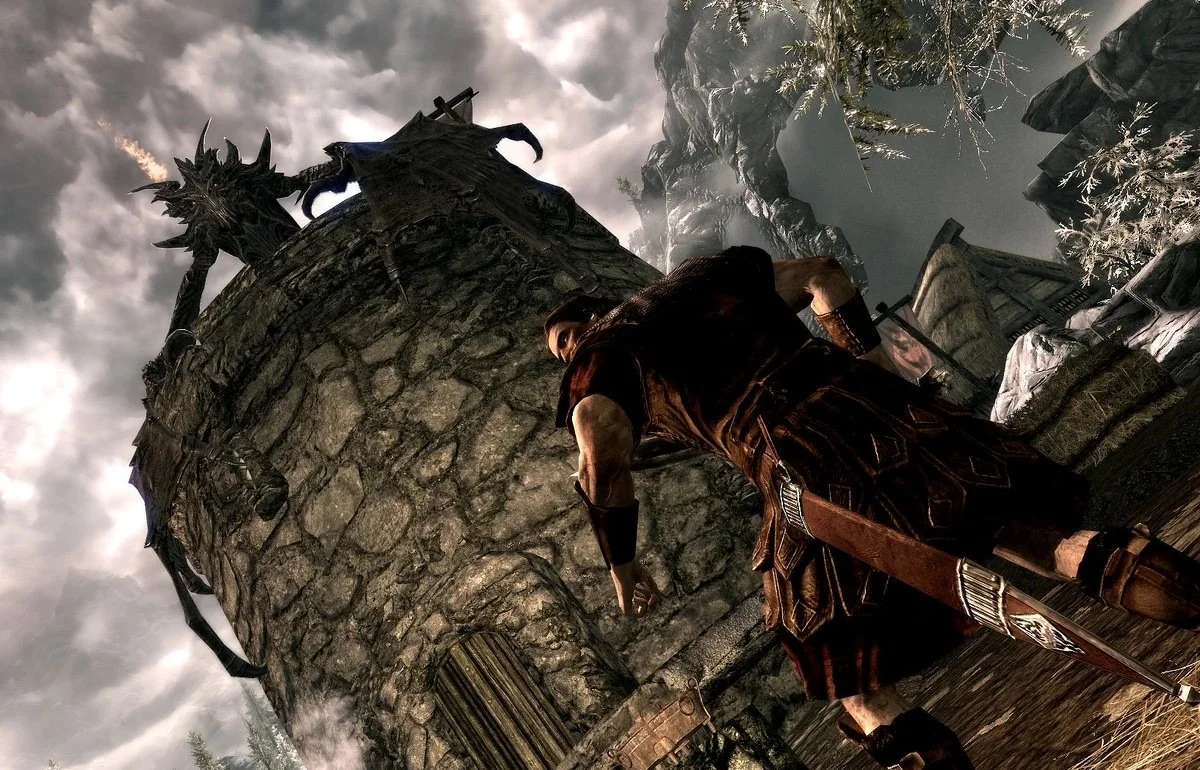What Are Role-Playing Games (RPGs)?
In the previous article I discussed a bit about what it means to be an applied game master and using tabletop role-playing games (TTRPGs) in therapy. But what even is a TTRPG? Actually let’s start even smaller, what do we mean when we call something a role-playing game?
A role playing game (RPG) is a style of game in which the player takes on the persona of a character that exists and interacts with the world of the game. RPGs got their start through paper and pencil games such as Dungeons and Dragons. They have become a vastly popular style of game for video games with titles such as The Legend of Zelda, The Elder Scrolls, and Mass Effect. In all role playing games there are three important elements, the world of the game, the rules of the game, and the player character in the game. Let’s explore each of these in more detail.
The world of the game is a fictional environment that is the setting for a story. This world can be vastly different from the world we inhabit, as it is in games such as Final Fantasy, or Warhammer, or it can be rather close to our lived experiences in games such as Grand Theft Auto or Vampire at the Masquerade. The wold is self-contained and typically feels complete for the players. Many RPGs rely on communal elements to build their world. This could be from a team of developers and writers for a game, or years of stories being told in the same world. Typically the worlds that RPGs are set in have history, legends, and lore that the players can explore and interact with. How does a player interact with the world? That is where the rules of the game come into play.
The rules of the game dictate how the players interact within the gaming world. The rules will include mechanics such as how the players become more skilled at things, how they can engage with other creatures in the world, and how the world will react and interact with the player character. Rules can be where players can feel the most liberated and the most limited.
In video games all of the choices that a player makes have to be ones that were programed into the game. For example when I was playing the game Skyrim the first time a dragon attacked (after the opening dragon that is…). I looked at the guards fighting it and thought, “They have that handled!” I wanted to go on about my business but the game story could not progress unless I went out to help the guards. I had wanted to build to fighting dragons and it seemed really weird to be doing so when I was a low level no one of a character trying to explore around the town.
In tabletop games the rules tend to only be limited by the imagination of the people playing. As noted in the previous article the Game Master (GM) will act as the narrator of the story and they will discuss how the world acts and interacts with your character. In a tabletop game having your characters run away is an option, there are typically consequences, but the choice of what to do fully rests with the players of the game (the GM can always say ‘no’ but generally that is frowned upon in the TTRPG world).
In TTRPGs the rules of the game can be quite strict, often called crunch, or less structured, often called fluff. Games that lean more into fluff tend to be more story focused rather than skill focused while crunchy games tend to focus heavily upon the skills of the player characters. This is not to say that a game system that focuses on skill cannot also have deep narrative elements, nor a narrative game skill elements, the terms have more to do with the amount of rules a game will have.
The final element of RPGs is that of the player character. The player character is the avatar for the player that exists and interacts with the world of the game. The character often will have ties to the world of the game and has a vested interest to be within that world. Here though seems to be where tabletop games and video games deviate.
When we are playing a video game RPG the player is often playing as themselves using the character as an avatar. So for example in the example from Skyrim above, it did not make sense for my character to want to go and fight the dragon, the game was counting on me as a person to wanting to go and fight the dragon. While in a tabletop game the player is expected to make choices that their character would want to do. In a table top game low level characters running away from a big dragon makes sense, they would likely know how powerful dragons are and how difficult to fight they would be so running away to live, and fight another day makes sense.
Another way you can think of RPGs is that they are games in which the player takes on the role of the main character in a story. The choices that the player makes impact what happens in the story and how the story will resolve itself. The actions that the player’s character can take will vary depending upon the rules and structure of the game. One of the reasons this style of game is popular is how immersive they can be.
Players can feel as though they can lose themselves in the world of the game. They can develop attachments to some of the non-playable characters (NPCs) in the world and feel true sorrow should anything bad happen to the NPCs. Roleplaying games can feel like a real lived experience, and many reward players for taking time to invest within those stories. The investment in the story, the immersive play experience, and the ability to shape and change the world of the game are a part of why this style of game is such a powerful tool for therapists to use, but more on that in another article!
If you are interested in this topic please consider preordering my book through [https://wwnorton.com/books/9781324030607] If you use the code TTRPT20 you will receive 20% off your order!



